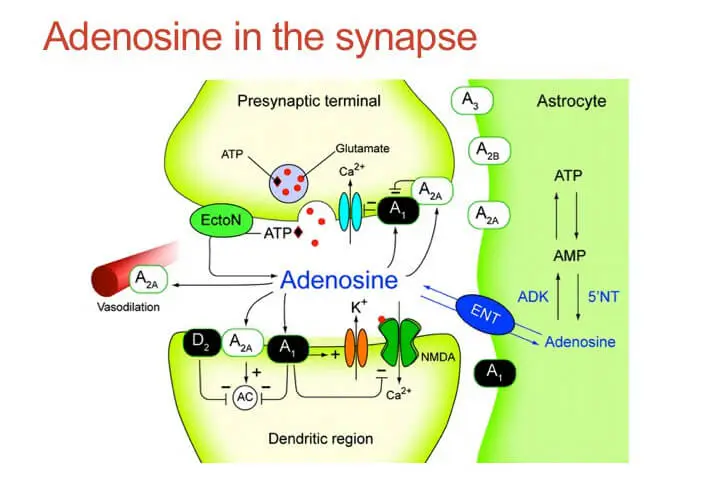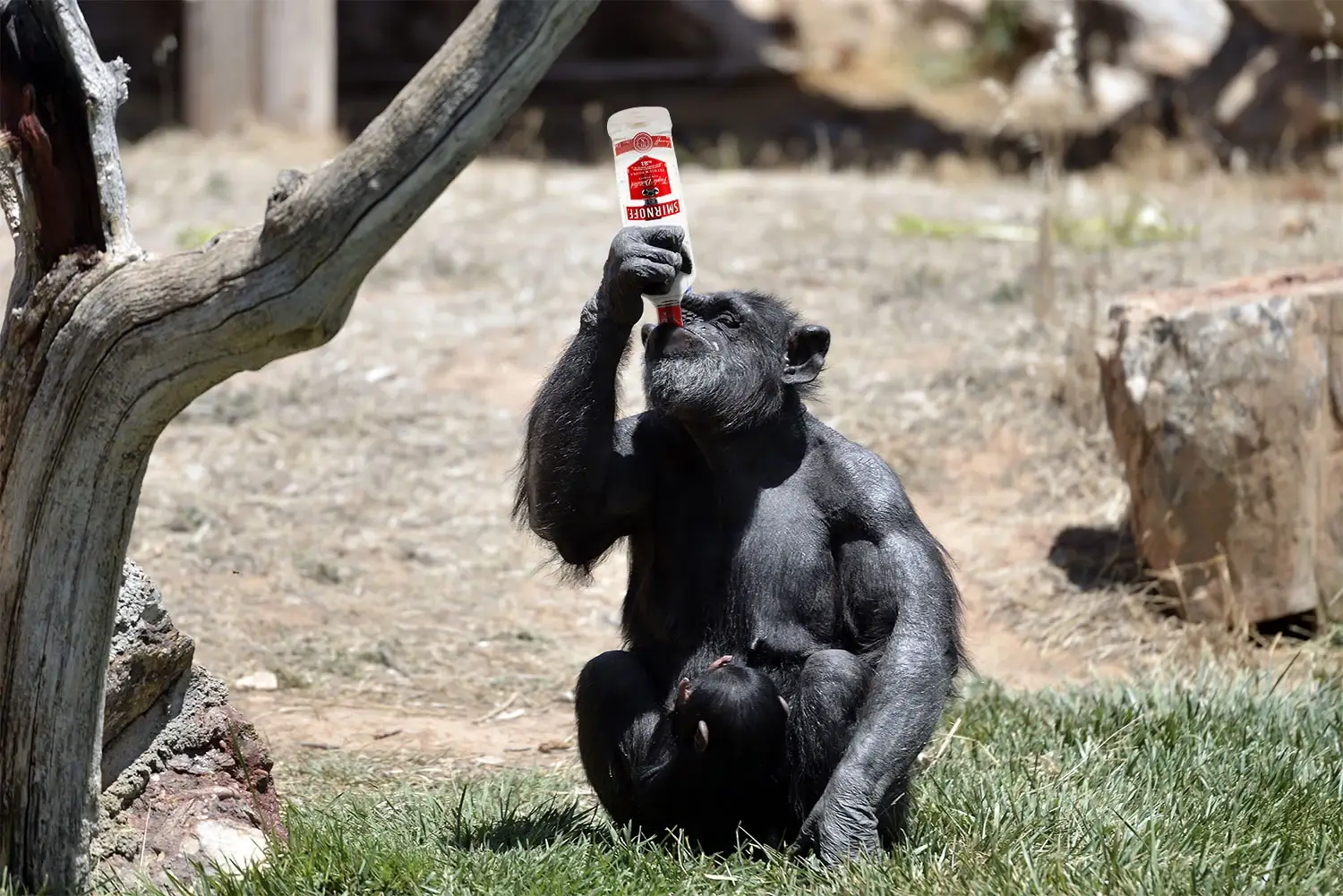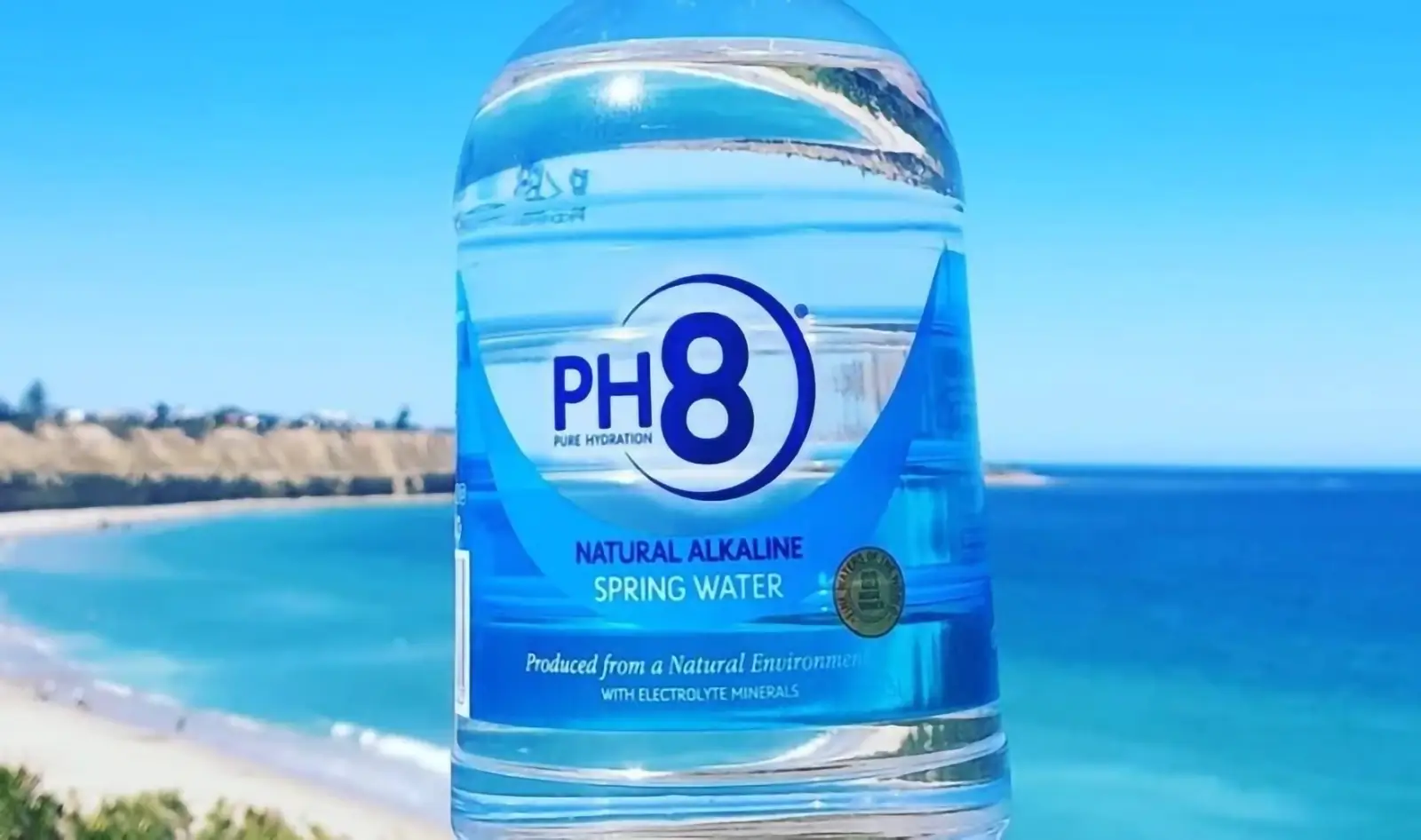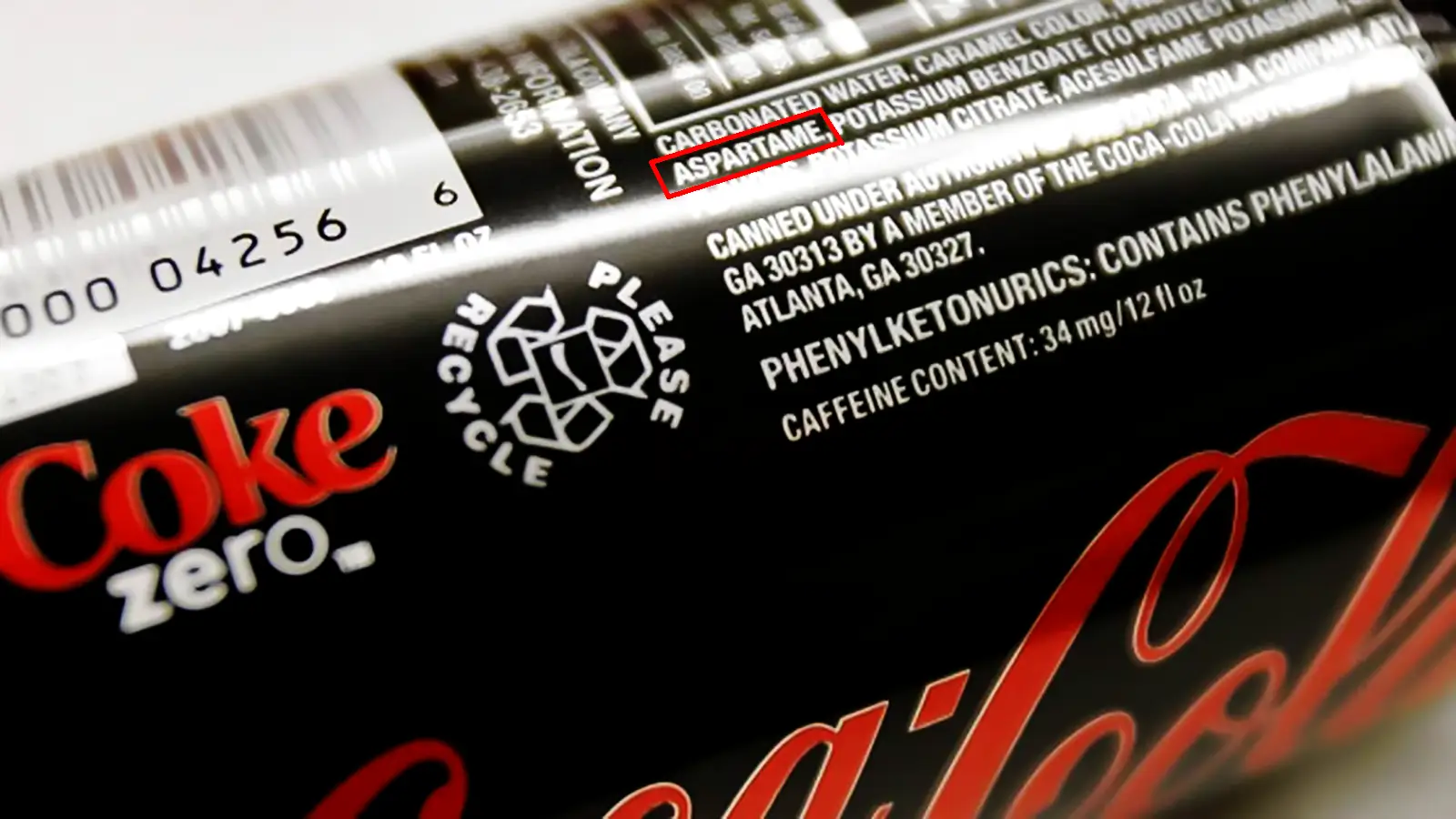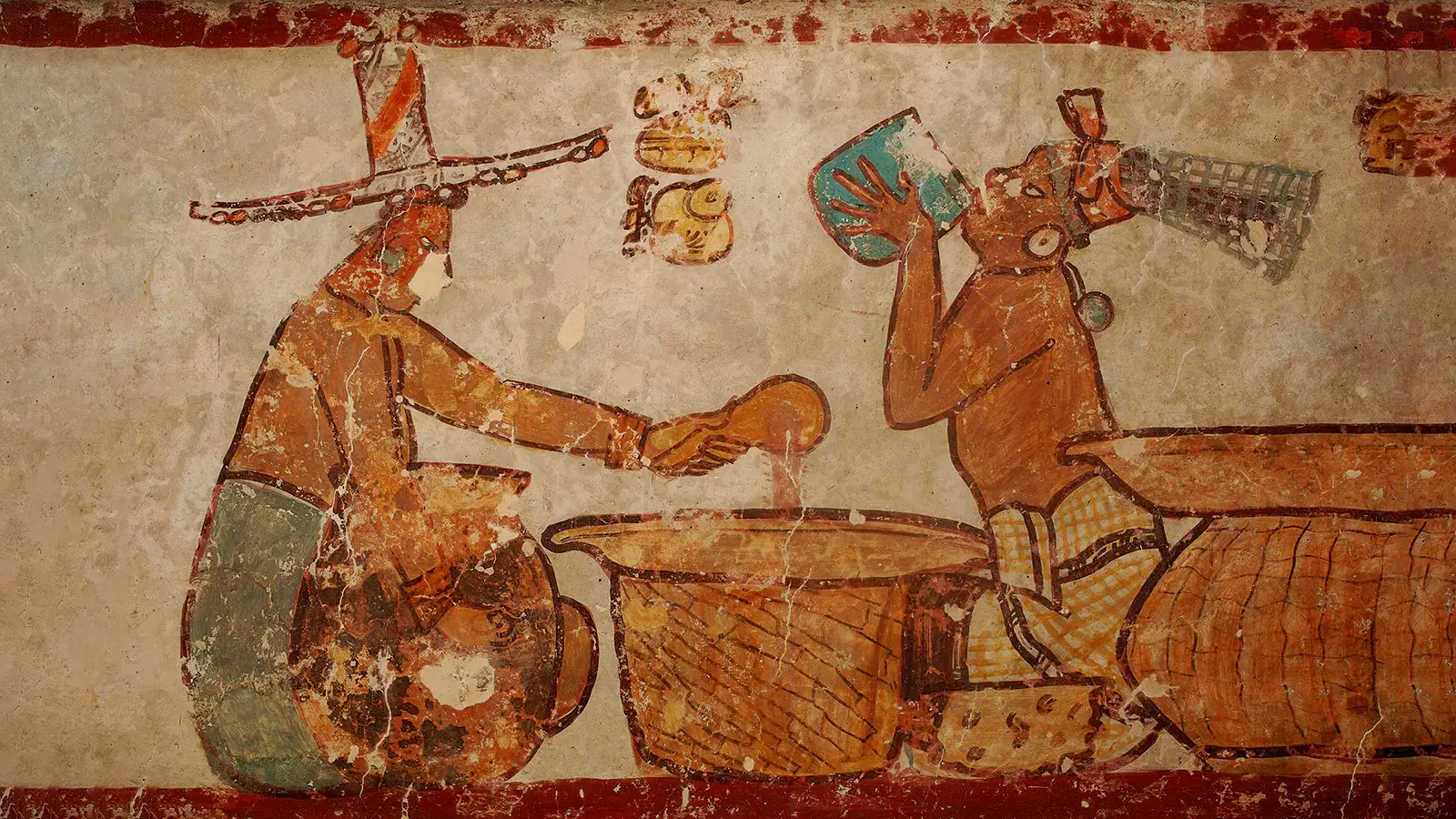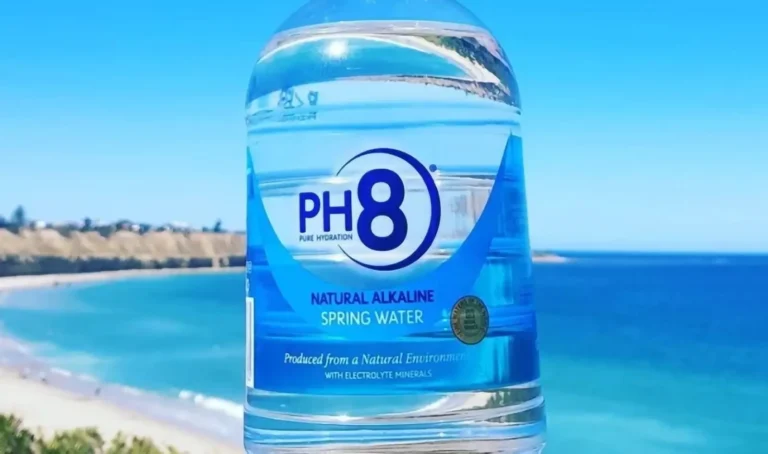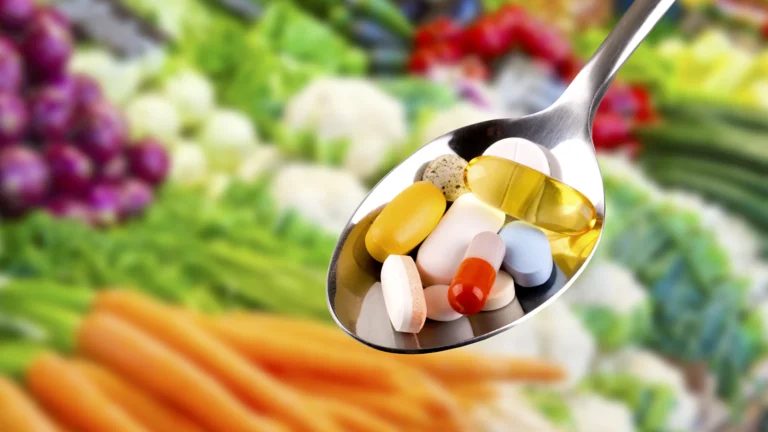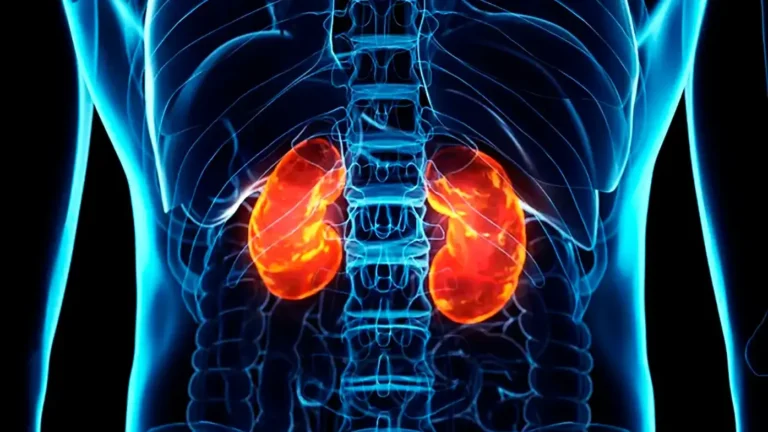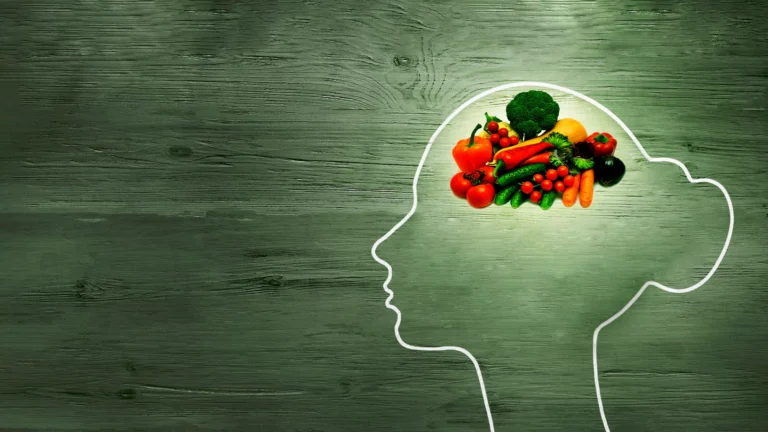Do we think coffee benefits we get when drinking it is something good for our brain or bad or neutral? What does the actual caffeine do and what are the risks?
Milos Pokimica
Written By: Milos Pokimica
Medically Reviewed by: Dr. Xiùying Wáng, M.D.
Updated May 29, 2023Do we think caffeine is something good for our brain or bad or neutral? There is much talk about coffee benefits but coffee benefits are also just one side of the coin. Coffee is also associated with some health risks that people usually just ignore. The real question is do we think that coffee benefits outweigh the associated risks?
So far research has no evidence to associate a link between coffee and an increased risk of heart disease or cancer. Some of the studies found decreased overall mortality by the same small amount, and some others found that it does the opposite. If we take an average conclusion from them, it will be approximately very small or no significant effect on longevity.
So are there any risks associated with the coffee benefits we so much desire?
Coffee seems to increase cognitive function and reduce the risk of depression. The potential coffee benefits also include protection against neurodegenerative diseases, improved asthma control, and lower risk of select gastrointestinal diseases. So did we find our amphetamine-like drug free of charge?
Coffee does have a high concentration of antioxidants providing cells protection from oxidative stress and inflammation. It is the bean after all. However, we can get other nontoxic beans to get all of the benefits that coffee bean has, and we should not confuse the coffee benefits as unique. Most antioxidant-rich foods will have the same effect.
When people talk about coffee benefits, they tell half-truths when insinuating that it is the benefit of that bean only and that we would not have similar benefits if we eat another type of bean. For example, cocoa beans have caffeine too but much more beneficial polyphenol antioxidants and much more health benefits so talking about the benefit of coffee is a little misleading.
To get to the truth, we should look into studies of pure caffeine and its effect on the body because that is the reason people drink coffee in the first place. We could get most of the coffee benefits with decaf too. It is caffeine that we need to investigate and not just use misleading science to justify our habit. It is the same story as alcohol, finding some benefits that we can also find in other food items without any unique special ability to just coffee beans so that we can justify our caffeine high.
What does the actual caffeine do?
We can take it in pills for example or in energy drinks. If we look at the chemical structure of caffeine, we will see that it is very similar to adenosine. Adenosine is a chemical in the brain that makes us sleepy. Whenever we are awake adenosine slowly accumulates in our brains. Adenosine binds to the receptors and in time slows our brain activity down. The longer we are awake, the more adenosine accumulates, and the more tired we feel. At some point, we will go to sleep. While sleeping concentration of adenosine declines and in the morning cycle begins again.
Because caffeine is similar to adenosine and acts as an adenosine receptor blocker in the brain, it will cancel natural brain chemistry making us feel more alert.
For individuals that regularly drink coffee in extensive amounts, our brains adjust by developing more adenosine receptors, so it takes more caffeine to elicit the same response. Having more adenosine receptors also means more adenosine makes its way into our brains so if we do not drink coffee, we will be more tired than in our regular normal state. In the morning, we will not be fully alert and during the day we will feel more tired if we did not drink our cup that day. It has a half-life of 6 hours meaning half of it will be gone in 6 hours so after 6 hours you will be feeling half of the effect. A couple of hours later it will be mostly gone, and we will need another cup.
Caffeine also stimulates the body to produce much more adrenaline than needed and that will end up in increased heart rate and anxiety.
Caffeine puts the body in a stressful state of fight and flight response leading to an increase in anxiety. People who are already overstressed and prone to panic attacks and other pro-anxiety conditions can have severe reactions with a tremor in their hands and cold sweats and heart palpitations from caffeine.
Caffeine also prevents dopamine from getting reabsorbed acting like cocaine in some sense leading to good feelings so by now we are in addictive behavior and have withdrawal symptoms. This dopamine effect is what makes coffee so addictive.
The reason why Coca-Cola puts caffeine in Coke is precisely because of this. Developing children’s brains is even more sensitive.
The lethal dose of caffeine is 150mg per kg of body mass. For a 70kg human, it is 14000mg caffeine. A cup of coffee on average has 150mg. This is not enough to kill but there is still one more fact that people tend to know little about. However, it is the one effect that is most important of them all. Adenosine also controls blood flow through the brain.
Caffeine produces cerebral vasoconstriction by antagonizing adenosine receptors.
Caffeine-induced cerebral vasoconstriction is well documented (Diukova et al., 2012). 250 mg of caffeine was found to be associated with significant reductions in cerebral perfusion thirty and ninety minutes later around. The value of decreased blood flow in the brain goes from 20% for one small cup of coffee to 40% for 2 or 3 cups. Chronic caffeine use results in an adaptation of the vascular adenosine receptor system presumably to compensate for the vasoconstrictive effects of caffeine. This entire adrenaline bump and stress in the form of I am suffocating and dying, help me, I am your brain without the oxygen is what actually wakes you up because you are about to die literally. That is what your alert state is. Fight or flight stress response. And that is the real job of caffeine, to be one more neurotoxic chemical for defense against pests. If you drink coffee every day, the brain adapts and tries to compensate.
Nevertheless, there is a deadline for what the brain can compensate for. The limit is around 400 mg of caffeine a day. Drinking more than that will have vasoconstrictive effects even in people who are chronic caffeine addicts. What happens is that in expectation of one more coffee cup the brain is going to raise its internal brain pressure. So when we drink coffee, the pressure will drop from vasoconstrictive effects and become normal. If you skip that cup in the morning and skip again in the afternoon the buildup of internal brain pressure is going to give you a migraine headache. That is the reason why people who are trying to quit usually suffer from headaches that can last for days before their brains start to adapt again to new normalized conditions. There is more.
Caffeine is also frequently utilized as a pre-workout supplement, but caffeine may adversely affect and limit bloodstream flow to heart muscle throughout the exercise (Namdar et al., 2009).
When we do physical exercise blood flow has to increase in order to match the increased need for oxygen and caffeine may adversely affect this mechanism too and not just the blood supply to the brain. It restricts the blood flow in the heart muscle, but interestingly enough it did not affect blood flow while the study subjects were at rest. When the subjects took caffeine tablets and exercised the blood flow was significantly lower than normal. Blood flow should increase when people exercise due to the more significant demand for energy, but caffeine blocks receptors for adenosine in the heart muscle and blocks specific receptors in the walls of blood vessels. I would not recommend that anyone take caffeine as a pre-workout supplement or for any athlete to drink caffeine before sports. In the upper mentioned study after oral administration of caffeine 200 mg bicycle exercise-induced myocardial blood flow decreased by 11% in regular individuals. In subjects who have coronary artery disease decrease was 18% and by 25% in stenotic subjects (with cholesterol deposit narrowing of coronary arteries). Caffeine is a pesticide that kills insects and other plants. Neurotoxic poison. It has the purpose of defending the coffee plant.
The coffee plant is one of the rare plants in nature that commits suicide. Unique coffee benefits, suicide. The leaves and beans that fall from the coffee tree have caffeine, and they start to poison the ground. At first, they kill everything that lives in topsoil but as time passes and more and more leaves fall, and more concentration of caffeine in soil raises more of the root system of the coffee plant itself gets affected. Investigations regarding the use of caffeine on plants demonstrated that when the concentration of caffeine gets high enough it begins to distort plant cells and if it gets even higher the result is the death of the plant.
People usually try to drink coffee when they are already stressed enough. They have a lot of work, or they need to study for the exam so that constant stressful response full of adrenalin and cortisol up and downs is going to give them adrenal fatigue and overall stressful condition. Adrenal fatigue is not a real disease just a made-up term. It is not an accepted medical diagnosis. There is a real medical condition called Addison disease which causes adrenal insufficiency. Adrenal fatigue does not cause inadequate production of one or more of these hormones as a result of an underlying disease. Adrenal fatigue is a light form of adrenal insufficiency caused by chronic stress with rapid hormonal ups and downs during the day. It is not as much the insufficiency of the adrenal glands as it is an overall fatigue state caused by constant hormonal fluctuations. Trying to take Valium to relax or because you are unable to sleep is just going to make things worse.
How many people are complaining about their stressful lives?
The valid question should be how many of them are caffeine addicts?
Keep that in mind the next time you are eyeing that 2nd (or 10th) cup of joe.
References:
- Diukova, A., Ware, J., Smith, J. E., Evans, C. J., Murphy, K., Rogers, P. J., & Wise, R. G. (2012). Separating neural and vascular effects of caffeine using simultaneous EEG-FMRI: differential effects of caffeine on cognitive and sensorimotor brain responses. NeuroImage, 62(1), 239–249. https://doi.org/10.1016/j.neuroimage.2012.04.041
- Namdar, M., Schepis, T., Koepfli, P., Gaemperli, O., Siegrist, P. T., Grathwohl, R., Valenta, I., Delaloye, R., Klainguti, M., Wyss, C. A., Lüscher, T. F., & Kaufmann, P. A. (2009). Caffeine impairs myocardial blood flow response to physical exercise in patients with coronary artery disease as well as in age-matched controls. PloS one, 4(5), e5665. https://doi.org/10.1371/journal.pone.0005665
- Butt, M. S., & Sultan, M. T. (2011). Coffee and its consumption: benefits and risks. Critical reviews in food science and nutrition, 51(4), 363–373. https://doi.org/10.1080/10408390903586412
Related Posts
Do you have any questions about nutrition and health?
I would love to hear from you and answer them in my next post. I appreciate your input and opinion and I look forward to hearing from you soon. I also invite you to follow us on Facebook, Instagram, and Pinterest for more diet, nutrition, and health content. You can leave a comment there and connect with other health enthusiasts, share your tips and experiences, and get support and encouragement from our team and community.
I hope that this post was informative and enjoyable for you and that you are prepared to apply the insights you learned. If you found this post helpful, please share it with your friends and family who might also benefit from it. You never know who might need some guidance and support on their health journey.
– You Might Also Like –

Learn About Nutrition
Milos Pokimica is a doctor of natural medicine, clinical nutritionist, medical health and nutrition writer, and nutritional science advisor. Author of the book series Go Vegan? Review of Science, he also operates the natural health website GoVeganWay.com
Medical Disclaimer
GoVeganWay.com brings you reviews of the latest nutrition and health-related research. The information provided represents the personal opinion of the author and is not intended nor implied to be a substitute for professional medical advice, diagnosis, or treatment. The information provided is for informational purposes only and is not intended to serve as a substitute for the consultation, diagnosis, and/or medical treatment of a qualified physician or healthcare provider.NEVER DISREGARD PROFESSIONAL MEDICAL ADVICE OR DELAY SEEKING MEDICAL TREATMENT BECAUSE OF SOMETHING YOU HAVE READ ON OR ACCESSED THROUGH GoVeganWay.com
NEVER APPLY ANY LIFESTYLE CHANGES OR ANY CHANGES AT ALL AS A CONSEQUENCE OF SOMETHING YOU HAVE READ IN GoVeganWay.com BEFORE CONSULTING LICENCED MEDICAL PRACTITIONER.
In the event of a medical emergency, call a doctor or 911 immediately. GoVeganWay.com does not recommend or endorse any specific groups, organizations, tests, physicians, products, procedures, opinions, or other information that may be mentioned inside.
Editor Picks –
Milos Pokimica is a doctor of natural medicine, clinical nutritionist, medical health and nutrition writer, and nutritional science advisor. Author of the book series Go Vegan? Review of Science, he also operates the natural health website GoVeganWay.com
Latest Articles –
Plant Based News
-
Is Margarine Vegan?
on July 15, 2025
-
California Cobb Salad With Smoky Coconut Bacon
on July 15, 2025
-
Malaysia’s Biggest Coffee Chain Just Launched A Vegan Menu
on July 14, 2025
-
Alpro Launches New Kids’ Range Of Vegan Milks And Yogurts
on July 14, 2025
-
3 Oil-Free Hummus Recipes To Keep In Your Fridge All Summer
on July 14, 2025
-
King Charles Visits Luxury Vegan Chocolate Shop In Scotland
on July 14, 2025
-
Kale Salad With Quinoa Pilaf
on July 14, 2025
Top Health News — ScienceDaily
- One shot, seven days: Long-acting levodopa gel tackles Parkinson’s tremorson July 14, 2025
Researchers in Australia have created a biodegradable gel that delivers Parkinson’s medications through a single weekly shot, replacing the need for multiple daily pills. Injected just under the skin, the gel steadily releases levodopa and carbidopa for seven days, helping keep tremors and stiffness in check while easing side effects linked to fluctuating doses.
- Can zebrafish help humans regrow hearing cells?on July 14, 2025
Zebrafish can regenerate sensory hair cells that humans permanently lose, like those in the inner ear linked to hearing and balance. New research reveals two specific genes that control how different supporting cells in zebrafish divide and regenerate, offering clues to how mammals might someday tap into similar regenerative powers.
- Deadly disguise: How candy-like nicotine pouches caused a 763% spike in child poisoningson July 14, 2025
A massive spike in young children accidentally ingesting nicotine pouches has alarmed poison control researchers, with a 763% rise reported between 2020 and 2023. Unlike other nicotine products, these pouches have quickly become the most dangerous form ingested, often leading to hospital visits. Experts say appealing packaging and flavors are part of the problem and they’re pushing for tougher safety measures, including childproof storage and flavor bans.
- Not all exercise boosts mental health — it’s the why that matters moston July 13, 2025
Movement helps your mood, but it’s not one-size-fits-all. Exercising for fun, with friends, or in enjoyable settings brings greater mental health benefits than simply moving for chores or obligations. Researchers emphasize that context — who you’re with, why you’re exercising, and even the weather — can make or break the mood-boosting effects.
- Hormone therapy supercharges tirzepatide, unleashing major weight loss after menopauseon July 13, 2025
Postmenopausal women struggling with weight loss may find a powerful solution by combining the diabetes drug tirzepatide with menopause hormone therapy. A Mayo Clinic study revealed that this dual treatment led to significantly greater weight loss than tirzepatide alone. Women using both treatments lost 17% of their body weight on average, compared to 14% in those not using hormone therapy—and nearly half achieved dramatic 20%+ weight loss.
- Not just diabetes: How slightly high blood sugar wrecks men’s sexual healthon July 13, 2025
Aging men aren’t just battling time—they’re up against rising blood sugar. New research reveals that subtle increases in metabolic markers like glucose have more influence on declining sexual health than age or testosterone levels alone. The findings, based on a 6-year study of otherwise healthy men, show that even below-diabetes-level sugar changes can impair sperm mobility and erectile function. But there’s good news: lifestyle choices and medical support could help men maintain […]
- Tirzepatide: The weight-loss drug that also shrinks breast tumors in miceon July 13, 2025
In a striking new study, the anti-obesity drug tirzepatide, known as Mounjaro and Zepbound, not only triggered significant weight loss in obese mice but also slashed breast cancer tumor growth. The research, presented at ENDO 2025, links body fat reduction to better cancer outcomes, suggesting that these next-generation weight-loss drugs might offer unexpected benefits beyond metabolic health. With traditional dieting often falling short, this dual-action approach could reshape how doctors […]
PubMed, #vegan-diet –
- Increasing Life Expectancy with Plant Polyphenols: Lessons from the Mediterranean and Japanese Dietson July 12, 2025
Plant polyphenols have emerged as potent bioactive molecules that can modulate key cellular pathways associated with aging and chronic disorders. The Mediterranean diet and the traditional Japanese style of life are rich in polyphenol-containing foods and beverages, and epidemiological evidence links these dietary patterns to increased longevity and reduced morbidity. This narrative review examines the chemical description of plant polyphenols, their mechanisms of action, including…
- Vegan diet, processed foods, and type 1 diabetes: A secondary analysis of a randomized clinical trialon July 12, 2025
CONCLUSIONS: These findings suggest that replacing animal products with plant-based foods may be an effective weight-loss strategy in people with type 1 diabetes, even when processed foods are included.
- Effects of different dietary patterns on glucose management in type 1 diabetes: a systematic review and meta-analysis of randomized controlled trialson July 11, 2025
BACKGROUND: Effective glucose management is essential to prevent complications in type 1 diabetes. While nutrition therapy is crucial, the optimal diet remains uncertain. Our systematic review and meta-analysis synthesized evidence from randomized controlled trials (RCTs) on the impact of various diets on glucose management in type 1 diabetes.
- Dietary acid load on the Mediterranean and a vegan diet: a secondary analysis of a randomized, cross-over trialon July 10, 2025
CONCLUSION: These findings suggest that, compared with the Mediterranean diet, dietary acid load decreased significantly on the low-fat vegan diet and was associated with weight loss. The alkalizing effect of a vegan diet may be an independent mechanism by which a vegan diet promotes weight loss.
- Effects of vegan diets and lifestyle on adult body composition: a narrative reviewon July 10, 2025
The health benefits of vegan diets are well documented, though achieving nutritional adequacy requires careful planning, as is the case with any well-designed diet. Vegan diets effectively address obesity, with emerging evidence suggesting that body composition analysis offers a more accurate assessment of body weight management than traditional body mass index (BMI) calculations. This narrative review evaluates the impact of vegan diets on adult body composition based on 16 human […]
Random Posts –
Featured Posts –

Latest from PubMed, #plant-based diet –
- Insects on the Plate: Nutritional Benefits, Health Impacts, and Market Dynamicsby Ravi Kumar Mittal on July 15, 2025
CONCLUSION: Consuming insects provides nourishment and leads to good health. They better meet nutritional needs than animal and plant-based diets and supplement protein consumption. Large-scale deployment requires safety and nutritional studies, transparent regulations, and customer acceptance.
- Effects of diet type on the core fecal bacterial taxa and the dysbiosis index of healthy adult dogsby Patrícia M Oba on July 15, 2025
There is great interest in studying the canine gastrointestinal microbiome. In healthy dogs versus those with acute and chronic enteropathies, specific bacterial taxa have been identified that are consistently associated with shifts in the microbiome. A qPCR-based dysbiosis index (DI) that assesses microbiome shifts was developed based on a subset of these taxa. Because most dogs consume kibble diets, published data on core bacteria and the DI were largely derived from dogs consuming that […]
- Assessing the Impact of Environment on the Color of Painted Turtles (Chrysemys picta) in the Wildby Georgina Jaimes on July 15, 2025
Animal coloration is a complex phenotype that may be affected by genetics, evolution, ecology, and environment. Disentangling the impact of environment on phenotype can often be done in laboratory studies, but the results do not necessarily correspond to the natural variation present in the wild. Painted turtles are a brightly colored freshwater species that inhabit a variety of environments in North America. There is known to be plasticity in the melanin coloration of the shell of painted…
- Artificial Intelligence-Generated Diet Plans for Hypertension and Dyslipidemia: Adherence and Nutritional Insightsby Emre Batuhan Kenger on July 14, 2025
CONCLUSION: This pioneering study found that AI-generated dietary models had low adherence to DASH and Mediterranean diets, though most recommendations were generally appropriate. Since the prompts only requested basic nutrition plans, future research should use more specific, personalized prompts to better assess AI’s role in managing chronic diseases.
- Plant-based dietary patterns and breast cancer risk in the European prospective investigation into cancer and nutrition (EPIC) studyby Sanam Shah on July 14, 2025
While previous literature suggests that plant-based diets may be associated with a lower risk of breast cancer, evidence remains inconsistent. In this study, we investigated the association between adherence to plant-based diets and breast cancer risk in the European Prospective Investigation into Cancer and Nutrition (EPIC) study. Overall plant-based diet index (PDI), healthful (hPDI), and unhealthful PDI (uPDI) were calculated, and multivariable Cox models were used to estimate hazard […]
- Therapeutic potency of a developed optimized polyherbal formulation in ameliorating obesity induced inflammation and oxidative stress in Swiss albino mice by targeting PPARγ, insulin receptor and…by Pritimoni Das on July 14, 2025
High fat diet (HFD) induced obesity plays a key role in onset of inflammation, a chronic response of the body to elevated expression of proinflammatory cytokines. Our work emphasized on assessing the therapeutic potency of the polyherbal formulations (PHF), composed of Phyllanthus urinaria and Adhatoda vascia nees by studying the expression pattern of iNOS, pro, anti-inflammatory cytokines, chemokine along with identification of potent anti-inflammatory compounds in HFD induced inflammation […]
